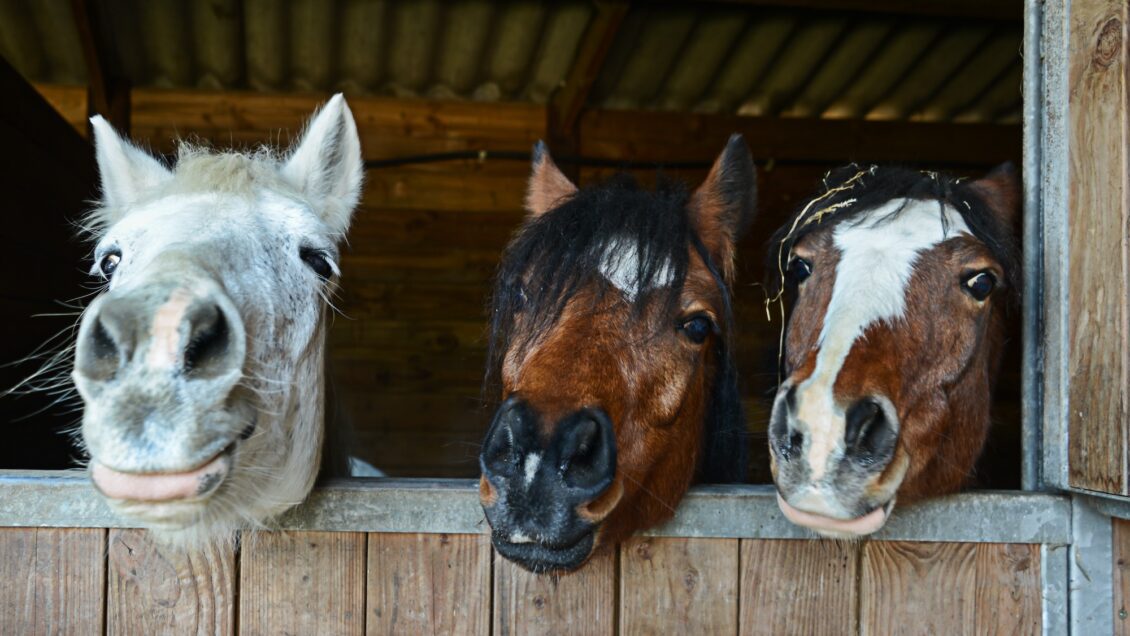Disaster can strike unexpectedly. In the event of a major emergency in your area, are you and your pets prepared to react and stay safe? June is National Pet Preparedness Month. Here are some important reminders from CVM’s Dianne Dunning, Associate Vice President of Strategic Initiatives. Dunning is a board-certified small-animal surgeon and the designer of a program that trains veterinarians to be effective first responders in case of an emergency.
“In my former role at NC State, we wanted to create an innovative competency-based Veterinary Credentialed Responder training to give our students another layer of education and experience,” said Dunning. “Our students have important knowledge to help animals who need medical help. Before and during a disaster, veterinarians can play an enhanced role in protecting and saving animal lives.”
Disasters can come in all forms. An emergency that would force people to flee their homes presents a significant challenge for those with pets and livestock. Staying in an unsafe situation or being unable to flee quickly endangers you, your pets, and first responders.
According to the American Veterinary Medical Association (AVMA), animals should be brought inside a home or sturdy structure at the first sign of a disaster. This will not only keep animals safe, but also allow them to be accounted for should evacuation be necessary.
Know where to go: Identify a family member or pet-friendly hotel where you can quickly evacuate. Make sure you have your pet’s vaccination records, a photo of your pets, veterinarian’s name and microchip information. Consider including a signed veterinary medical treatment authorization with your evacuation kit. This will help your veterinarian provide care if your pet must be treated during your absence.
Temporary Shelter: Each pet should have their own carrier. If possible, a cat carrier should be large enough to fit a small litter box. The carrier may have to be temporary housing for your pet, so they should be comfortable in that space.
Food and medication: Plan for 3-7 days of food and two weeks of medication. Don’t forget a manual can opener.
Comfort: Don’t forget comfort items for your pets, such as bedding, toys and treats.
“The biggest mistake pet parents can make is to not make a plan,” said Dunning. “The best outcome of disaster preparedness is little to no disruption to your home or work life as a result of your disaster plans.”
This disaster preparedness advice is similar for smaller backyard farm animals such as goats and chickens. What about larger pets such as horses? According to equine expert and CVM Associate Dean of Academic Affairs Nicki Wise, if there is an evacuation order in your area, plan to take your horses with you.
“This means planning in advance to make sure you have the trailer ready, a week of feed available, a plan for providing fresh water and all health records necessary for interstate travel said Wise. “If the horse does not have permanent identification like a brand or tattoo, owners can use neck collars, dog/cattle ear tags on halters or braided into the mane or tail in case you are separated from your horse during the evacuation.”
Wise emphasizes that if you can’t take your horses with you, do not lock them in a stall or barn.
“Give them access to one week of hay, an abundance of fresh water and be sure to identify them in some way,” said Wise. “Aside from the aforementioned tactics, owners can also use livestock paint on the horses’ bodies to include your phone number should they be displaced from your farm during the event. It is imperative that local emergency response teams be able to identify your animal when they are found.”
Learn more:
https://www.avma.org/sites/default/files/2023-11/aph-save-the-whole-family-pets.pdf
https://old.aaep.org/guidelines/emergency-and-disaster-preparedness
Get in touch and we will connect you with the author or another expert.
Or email us at news@clemson.edu

